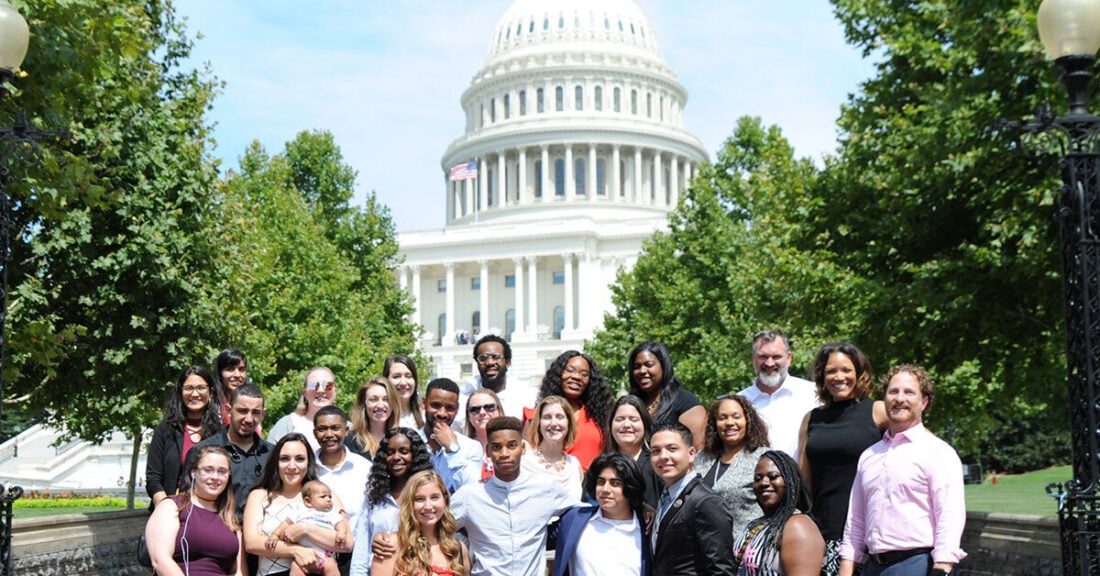Curriculum Helps Adults and Youth Build Authentic Partnerships

The Elevating Youth Engagement (EYE) training curriculum is now available online — at no cost. Developed by the Annie E. Casey Foundation in partnership with Cetera Inc., the curriculum offers child welfare agencies and youth-serving organizations a clear, actionable guide to building effective, authentic partnerships with young people who have experienced foster care.
For young leaders, EYE provides the skills and confidence they need to advocate for themselves and their peers — and to become informed, empowered participants in shaping policies and services that affect their lives.
There are many frameworks for youth engagement — but EYE goes further. It’s a comprehensive “how-to” curriculum that offers concrete strategies and real-time opportunities for adult supporters and young leaders to apply the lessons through exercises.
Codesigned and tested by young people with foster care experience, including Jim Casey Fellows, the curriculum draws on more than two decades of practice across the Foundation’s Jim Casey Youth Opportunities Initiative® and its national network.
The Jim Casey Initiative uses a framework grounded in adolescent brain science and deep experience partnering with young adults and providing youth leadership training. Over the past 24 years, it has evolved from a recognition of young people’s strengths to a tested model for partnership that delivers results. Since 2001, the Jim Casey Initiative and its network sites have helped influence more than 390 policy and practice changes, with youth contributing to 87% of those wins in 2024 alone.
Learn more about the Jim Casey Initiative
The EYE curriculum puts this model into action and aims to reflect what young people say they need to thrive and bring vital insights to improving child welfare systems.
“We don’t talk enough about how taxing advocacy can be — especially when it involves trauma or working with people who don’t recognize that young people have the right to set boundaries,” said Antoinette Rucker, a Jim Casey Fellow and senior youth engagement consultant at Cetera Inc., who led the development of the young leaders track. “I designed the track thinking, ‘These are the things I wish I had known sooner.’”
EYE includes everything you need to deliver the training effectively — whether as a full series or through standalone sessions tailored by audience or topic:
- PowerPoint training decks
- Facilitator guides
- Participant handouts
It features three distinct tracks and eight total modules, organized as follows:
Modules for Adult Supporters
- Foundations of Authentic Youth Engagement helps organizations assess and expand how they engage young people.
- Coaching as a Youth Engagement Practice covers shared decision making and how to use coaching to support youth goals.
Modules for Young Leaders
- Youth Advocacy 101 helps young people build skills to advocate for themselves and others, and educates them on how child welfare policies and practices are shaped.
- Wellness and Advocacy for Young Leaders offers tools to support wellness when young leaders are sharing their stories, especially when these involve traumatic experiences.
Modules for Combined Youth-Adult Audiences
- Values and Authentic Youth Engagement examines how values influence identity, decisions and collaboration.
- Youth-Adult Partnerships and Adolescent Brain Development explores the effects of foster care on young people’s brain development and the positive benefits of giving agency and authority to young people who may have had little say in past decisions affecting their lives.
- Partnership to Action: provides guidance on supporting young people before, during and after leadership opportunities — including compensation.
- Action Planning for Authentic Youth Engagement: helps develop tailored youth engagement strategies and action plans.
“The Elevating Youth Engagement curriculum captures what’s worked for our sites and partners across the country and makes it more accessible,” said Alex Lohrbach, a senior associate with the Foundation’s Family Well-Being Strategy Group. “At the heart of the Jim Casey Initiative’s success is the belief that youth engagement should be mutually beneficial — not just about what young people bring, but also about how opportunities serve them.”






